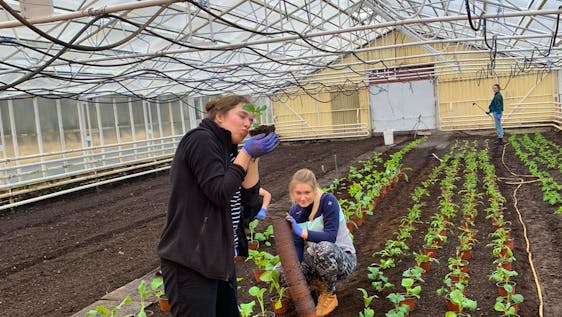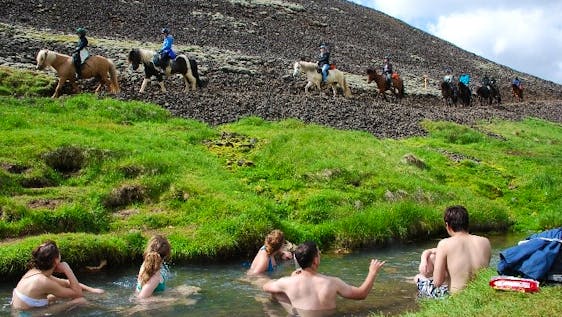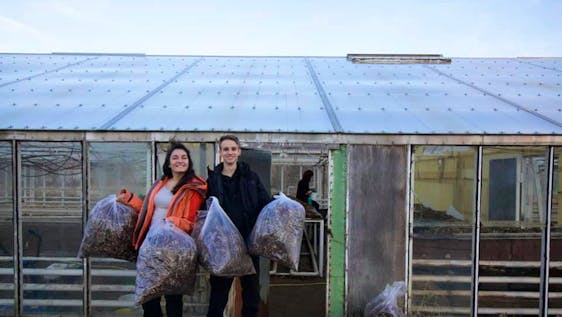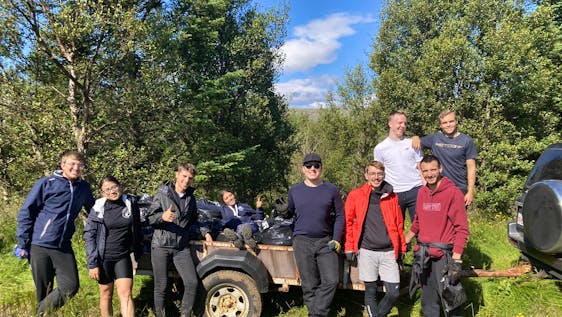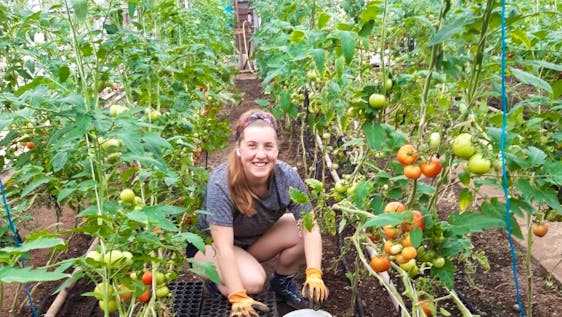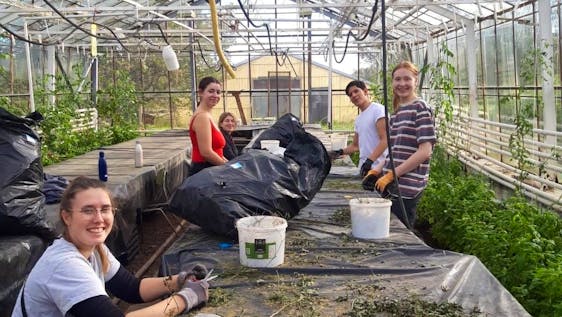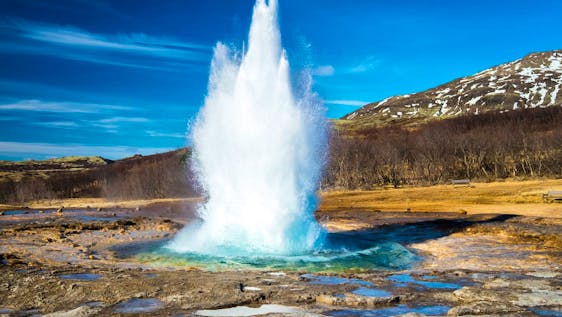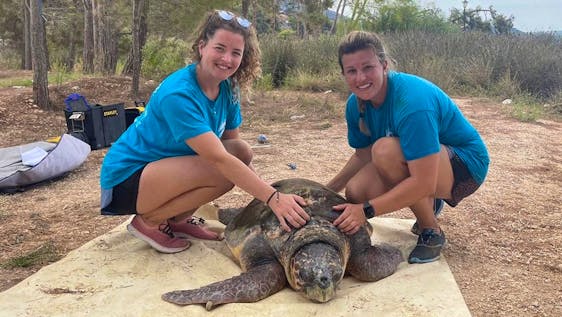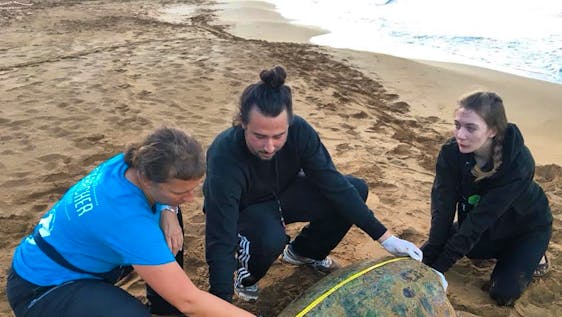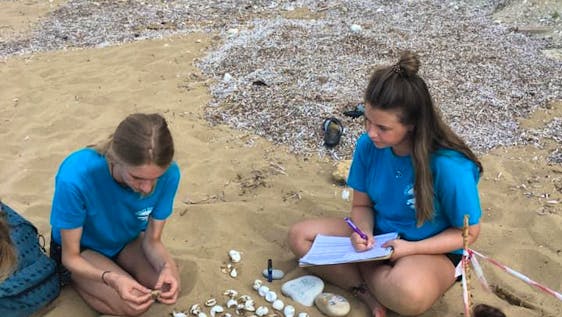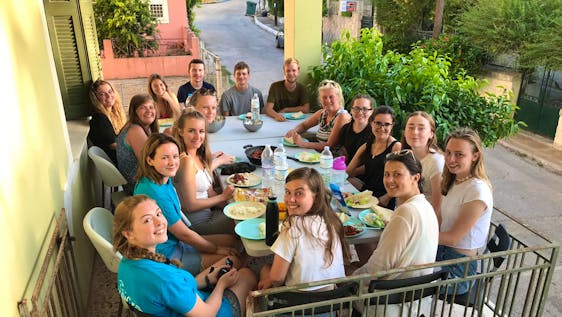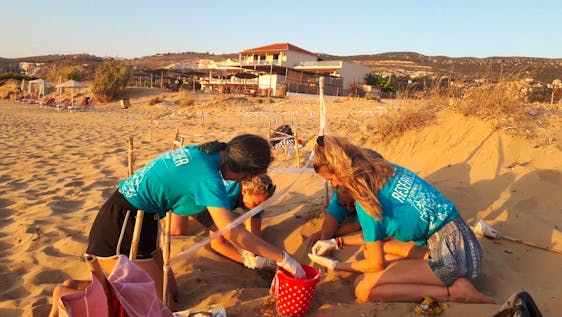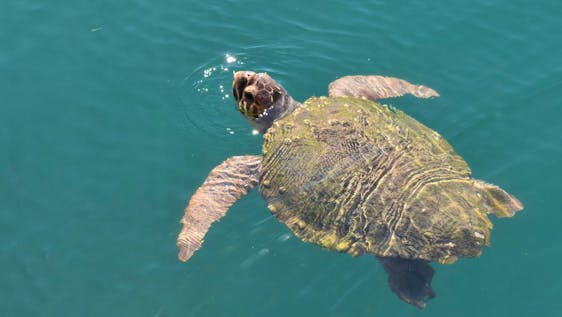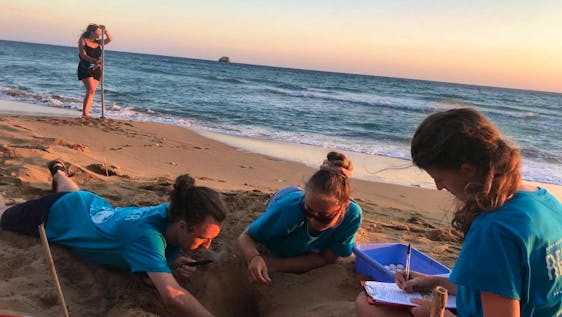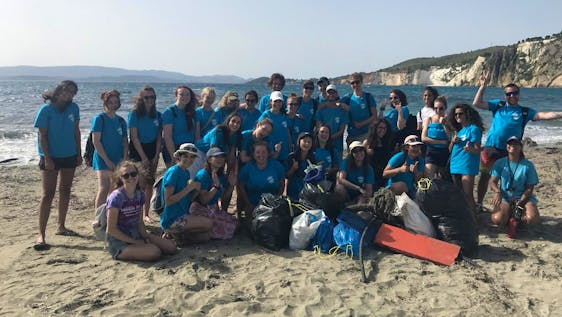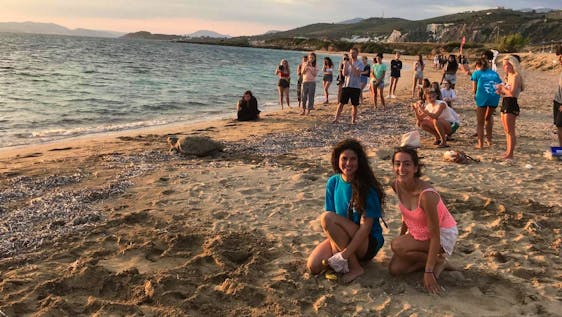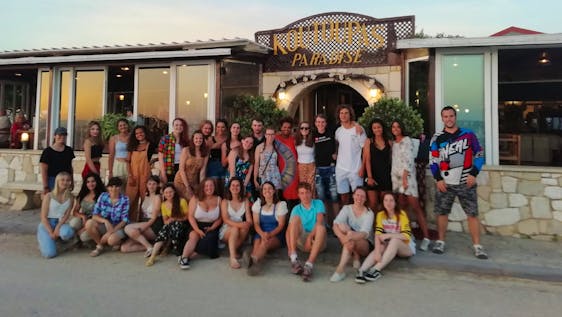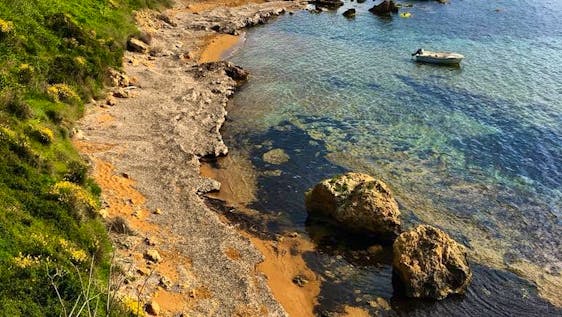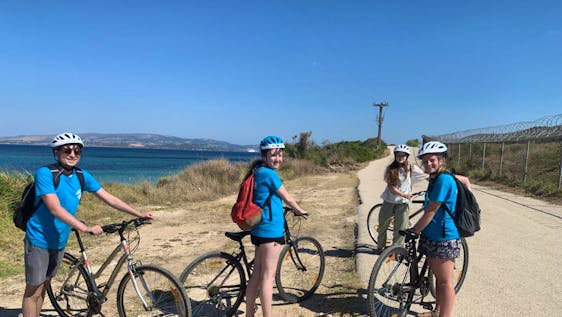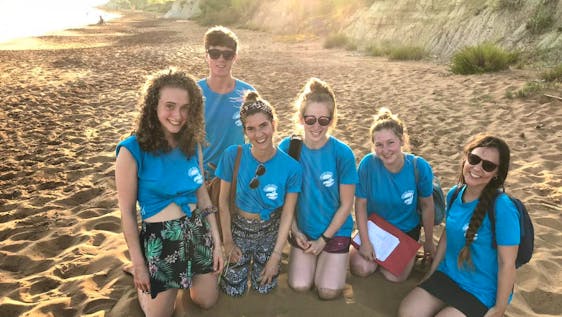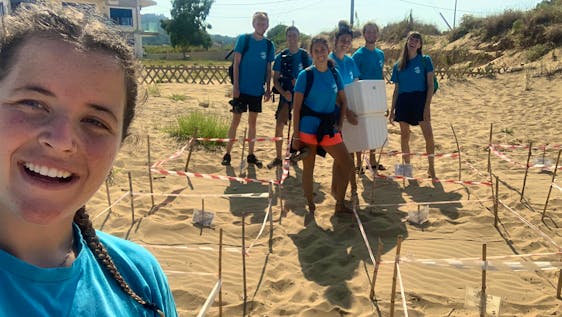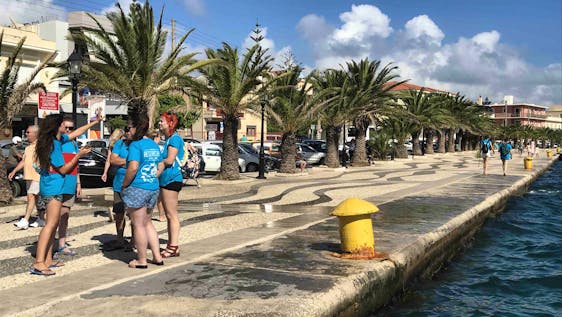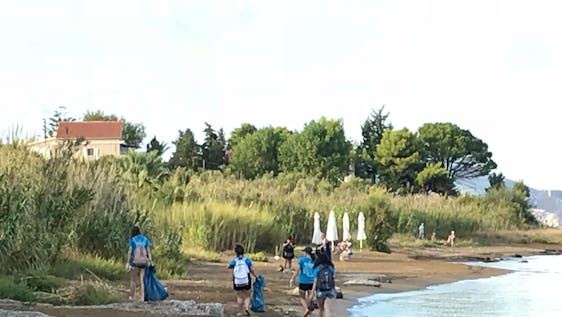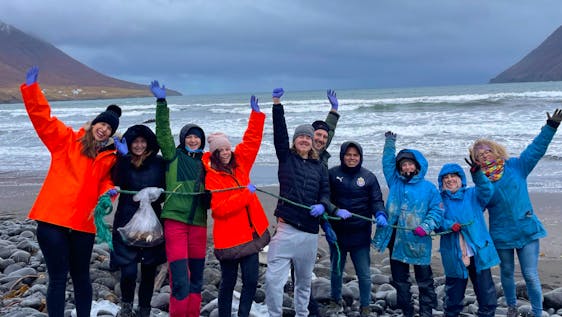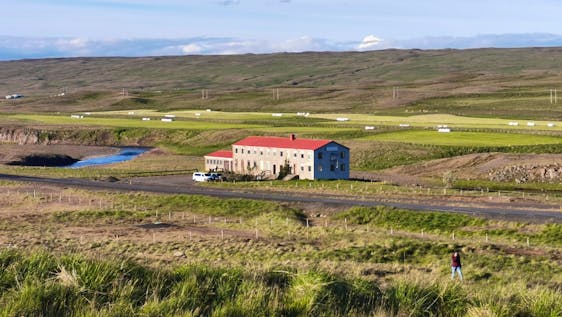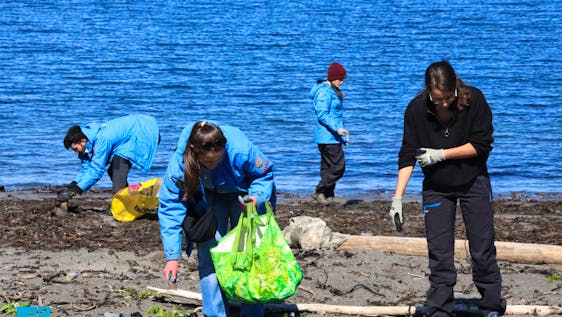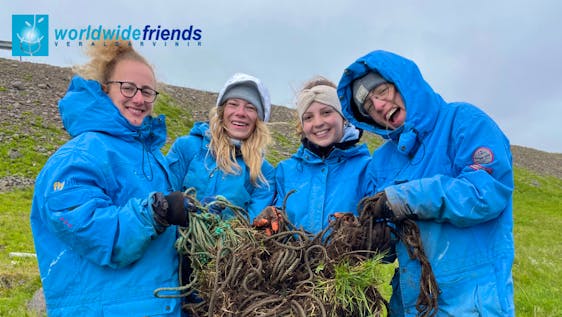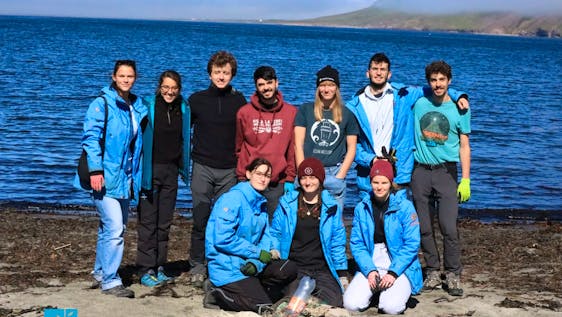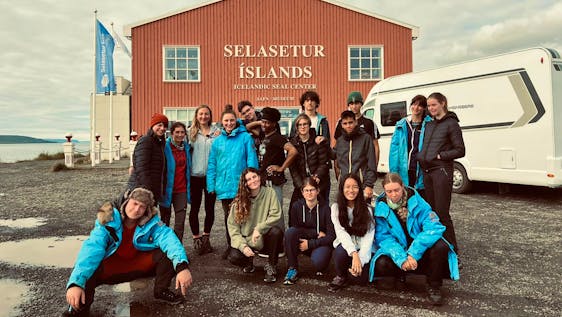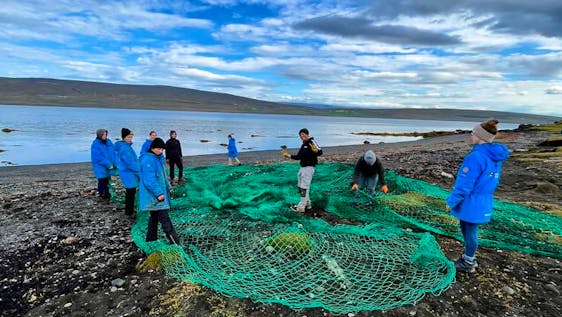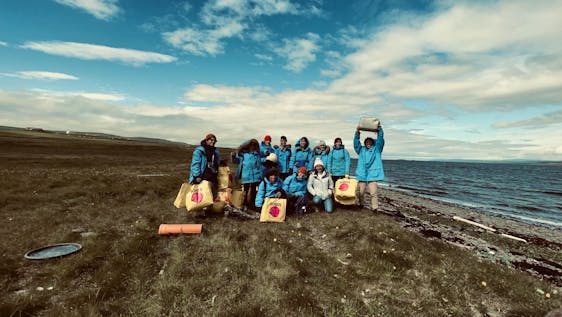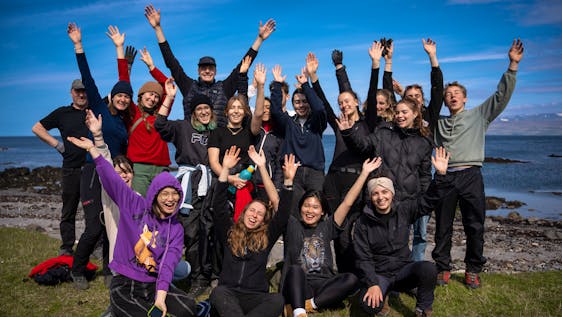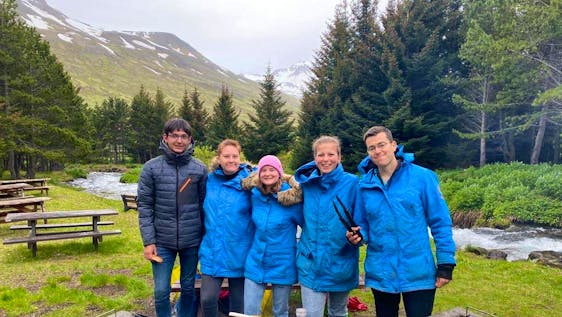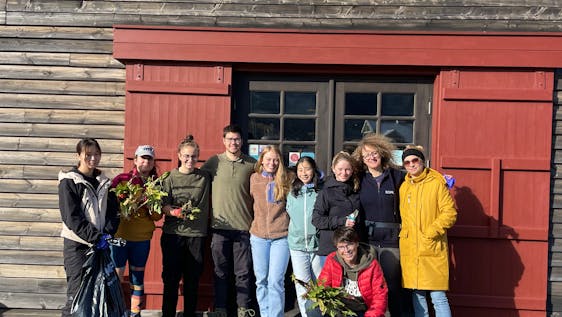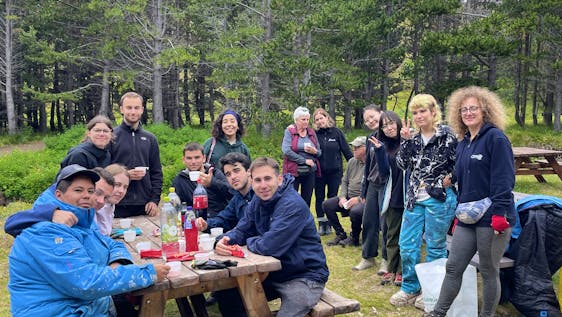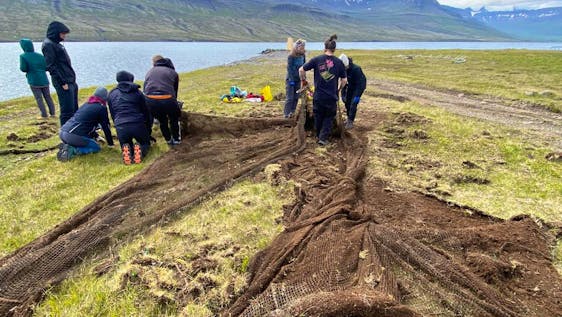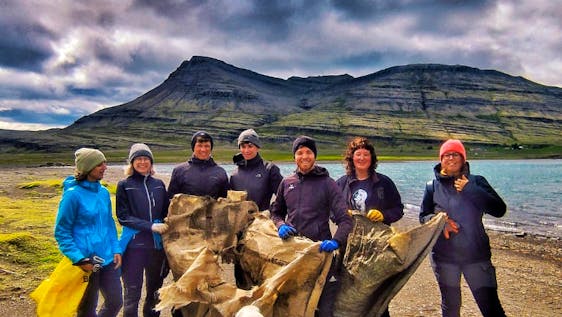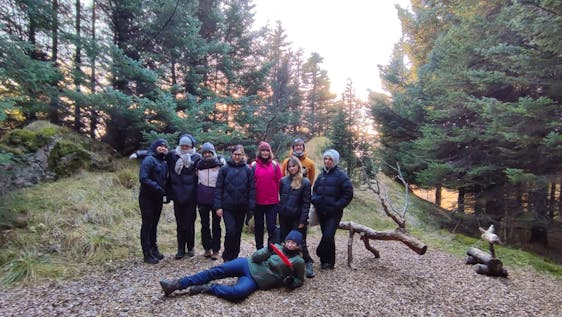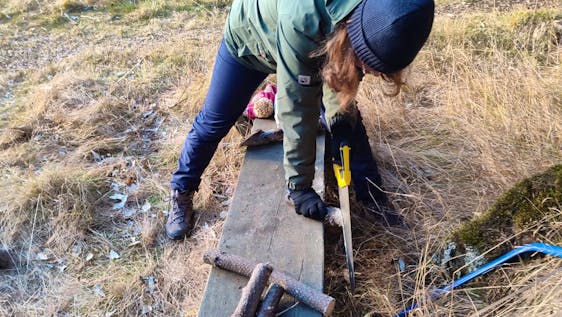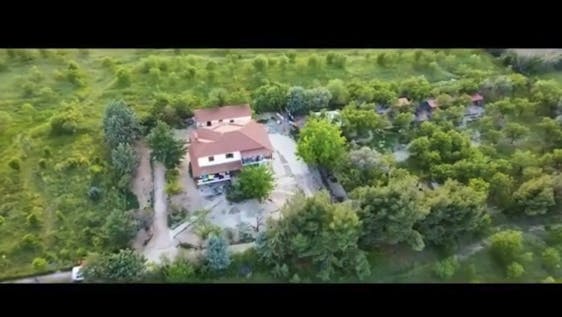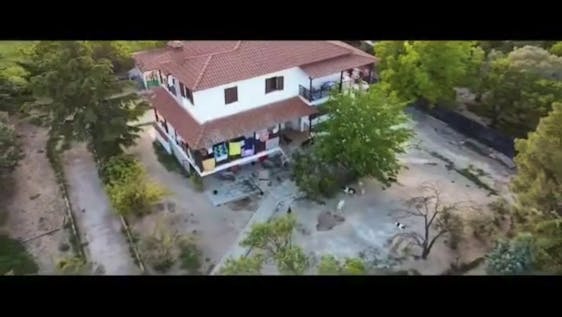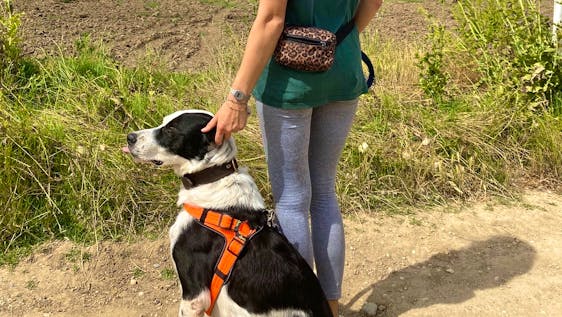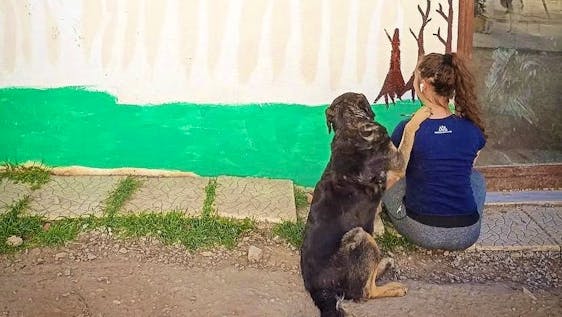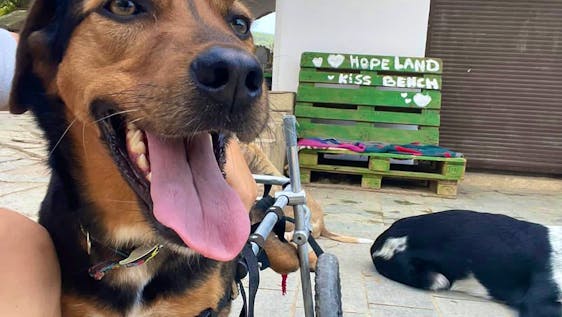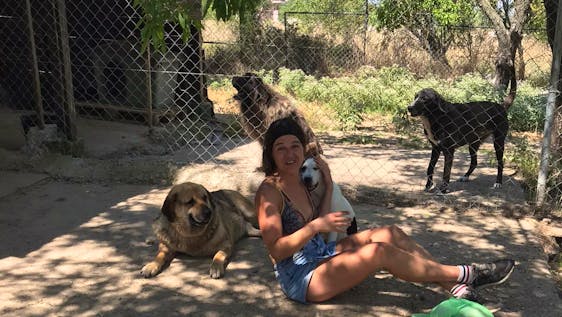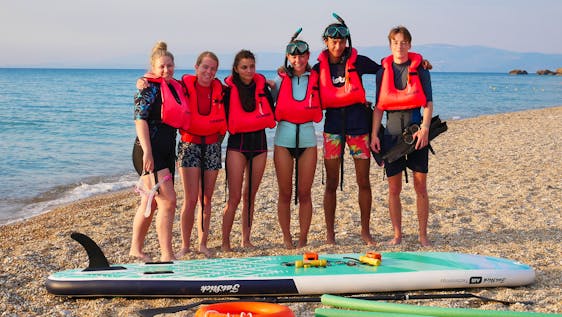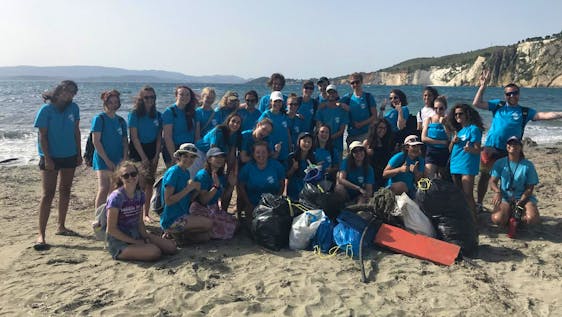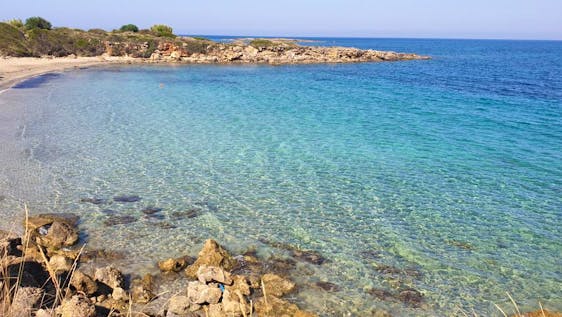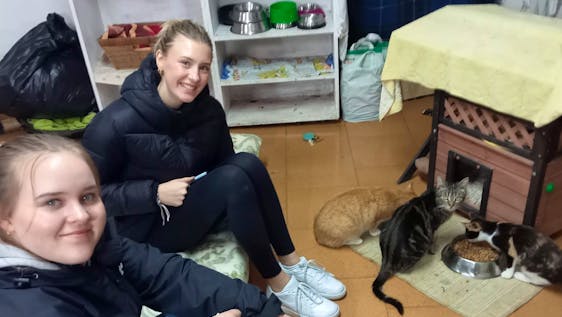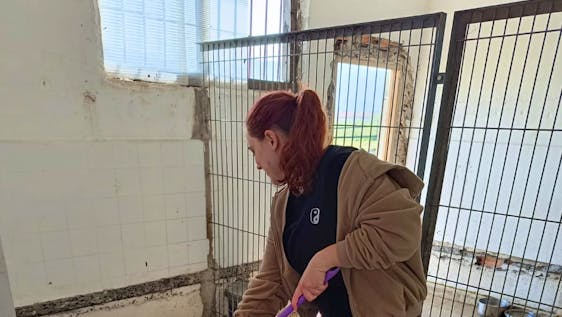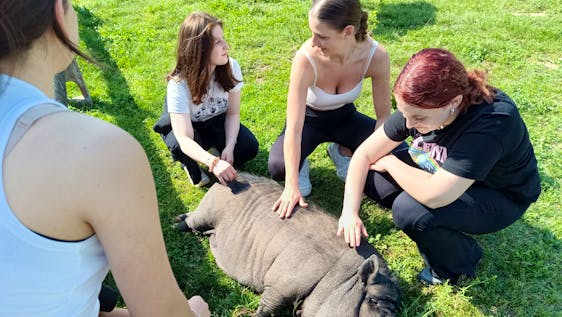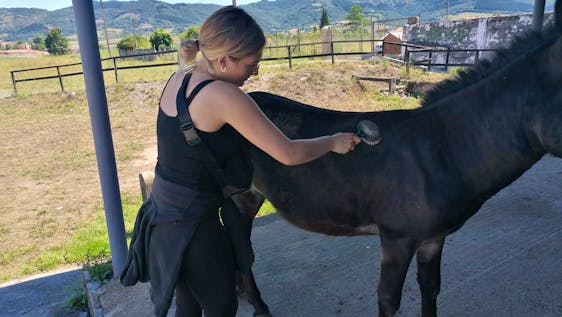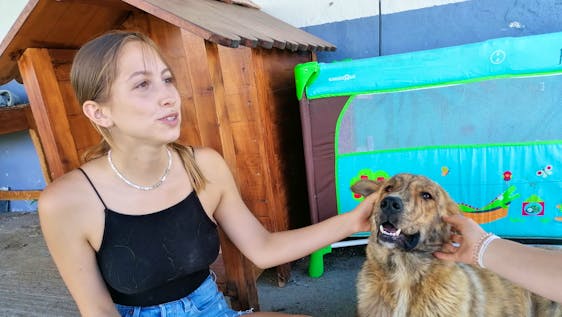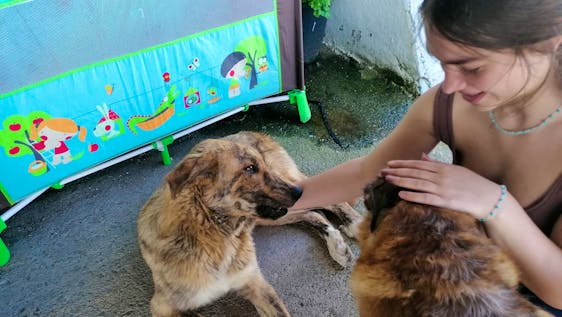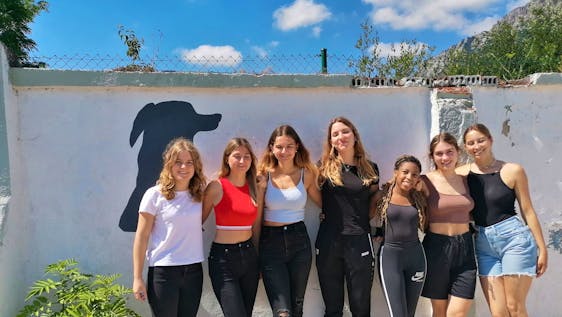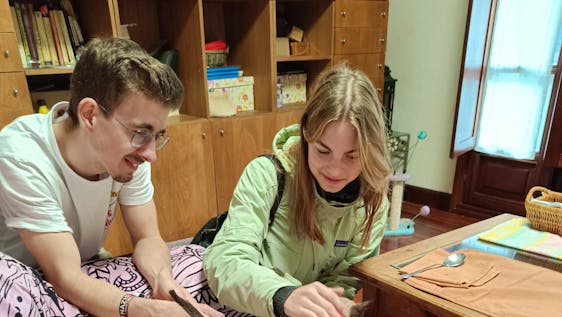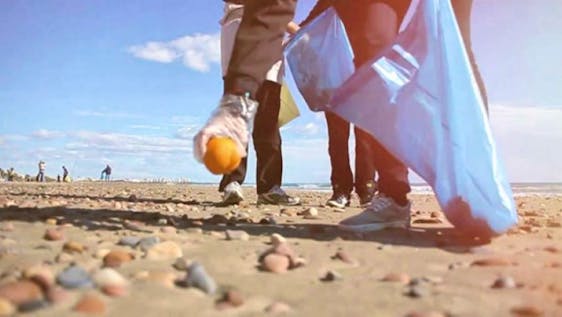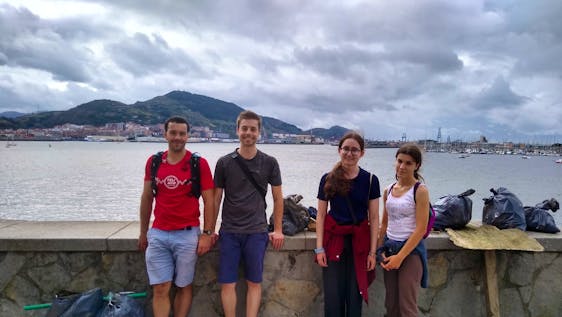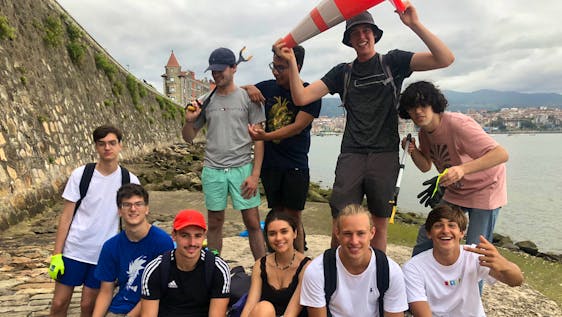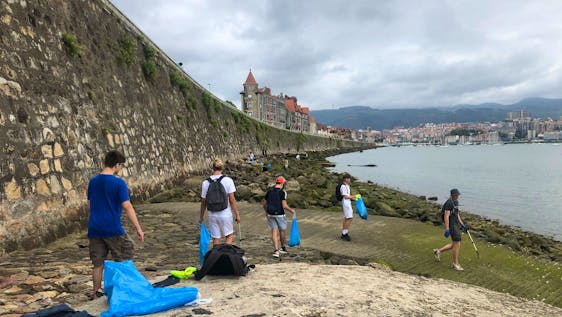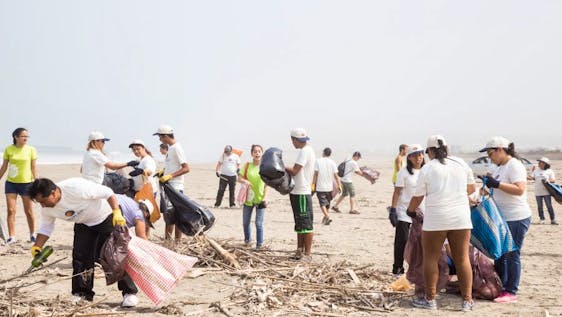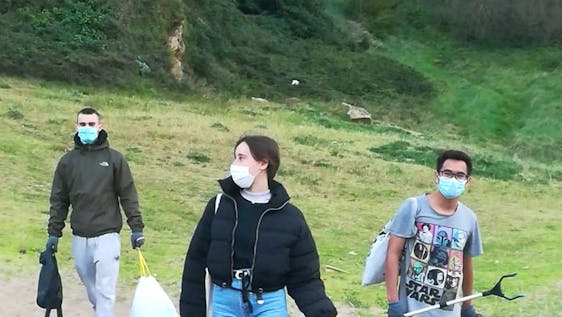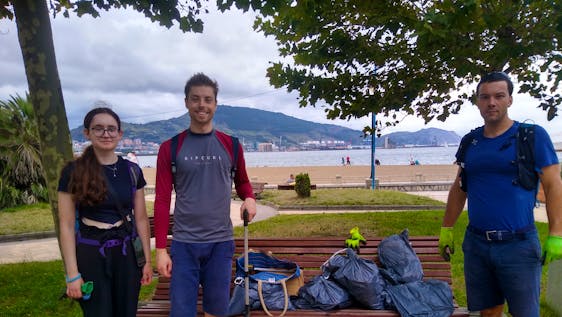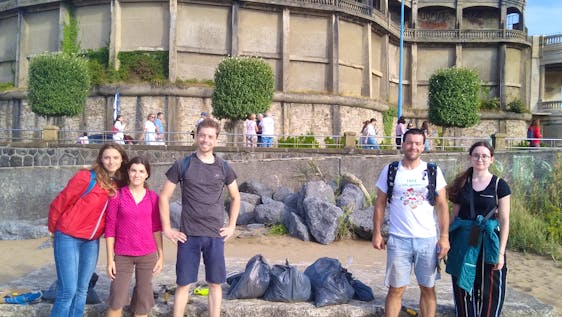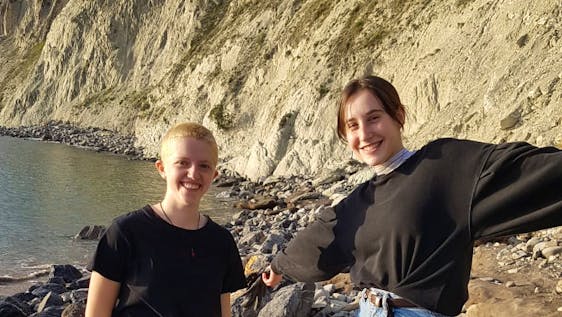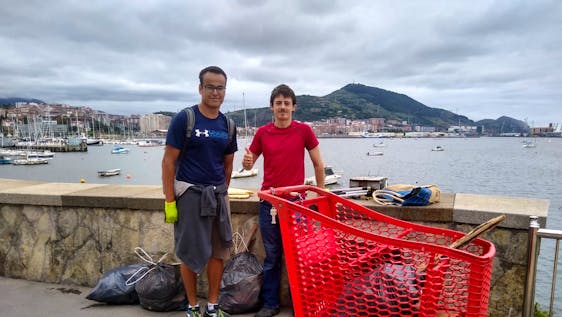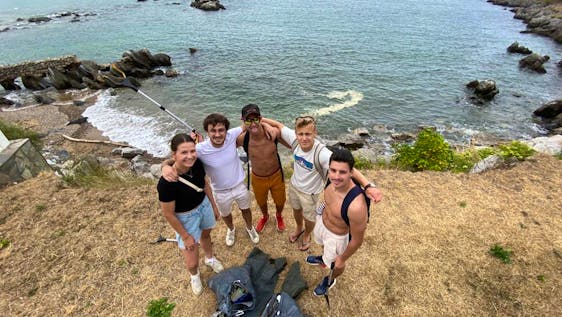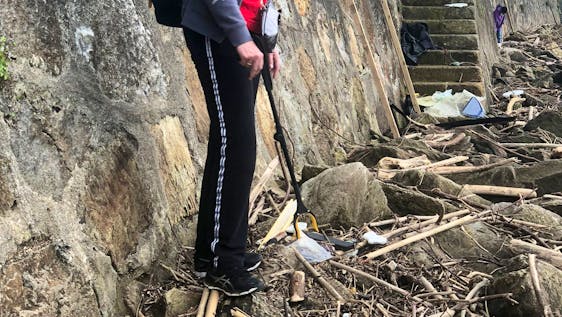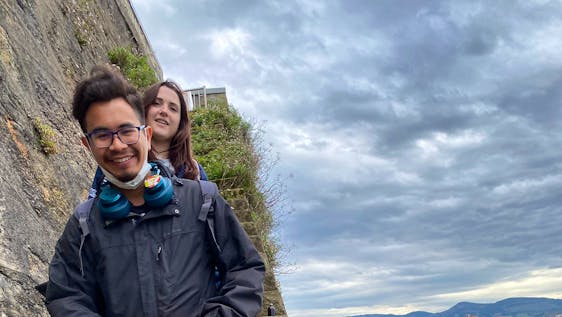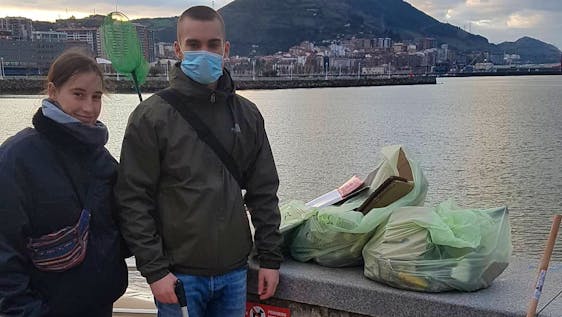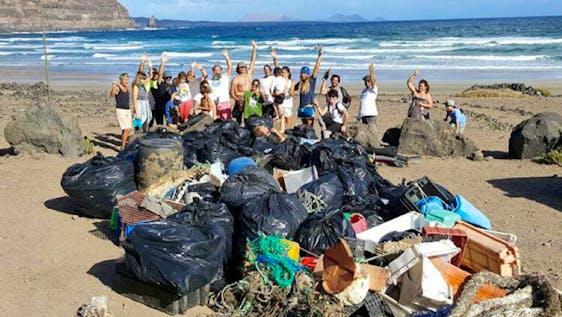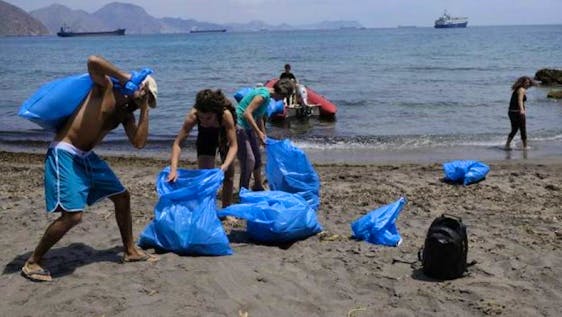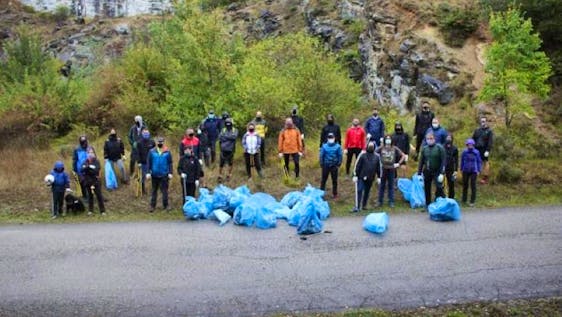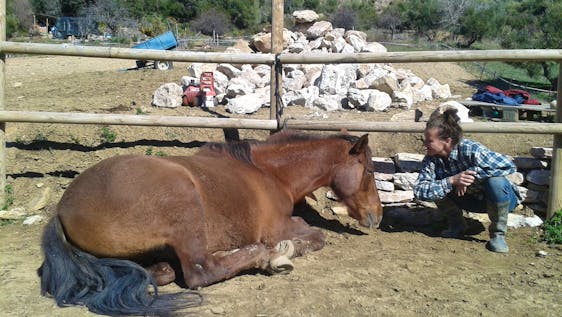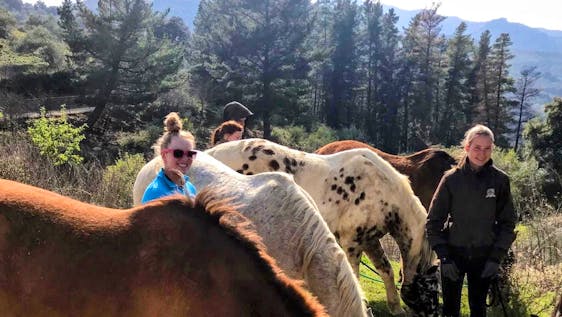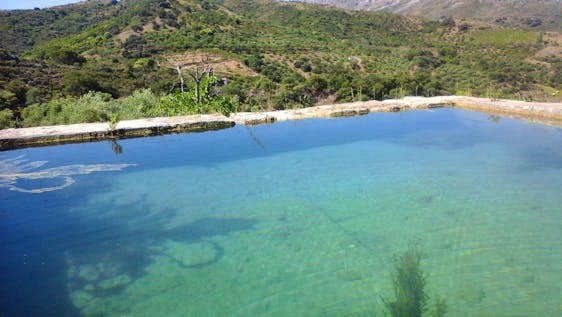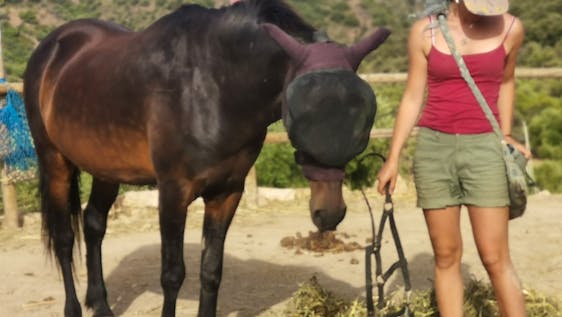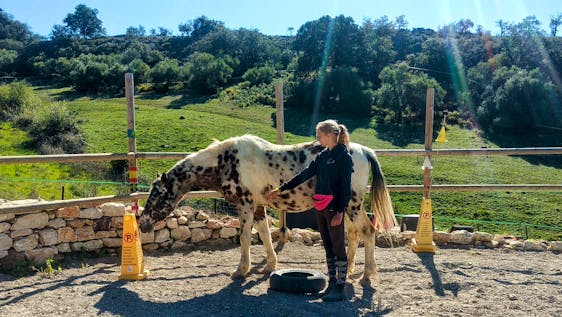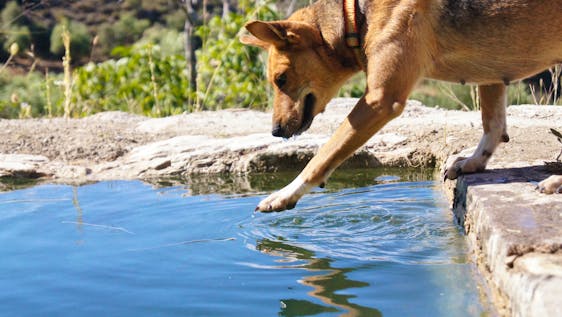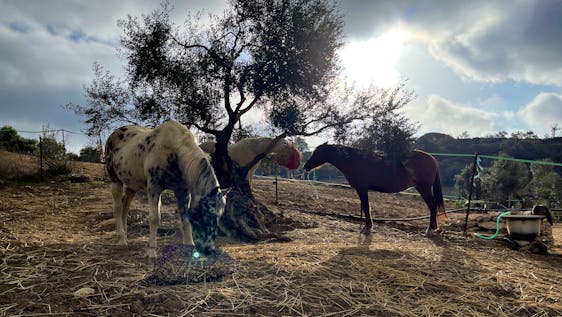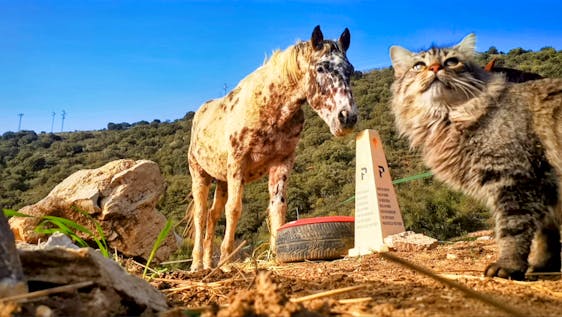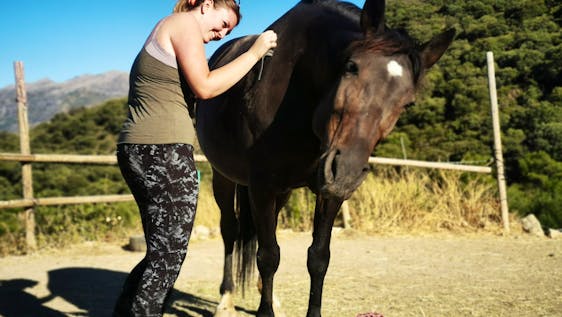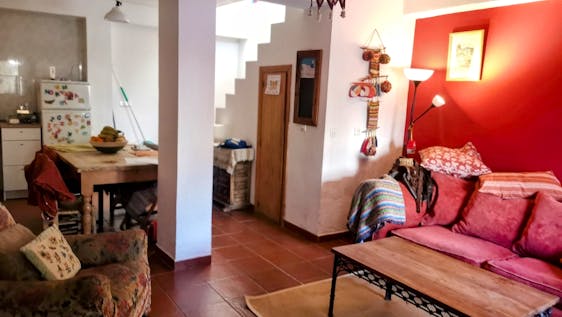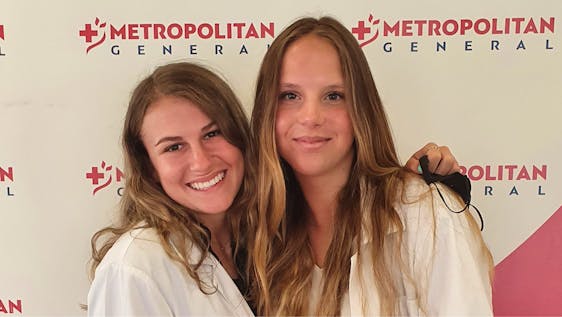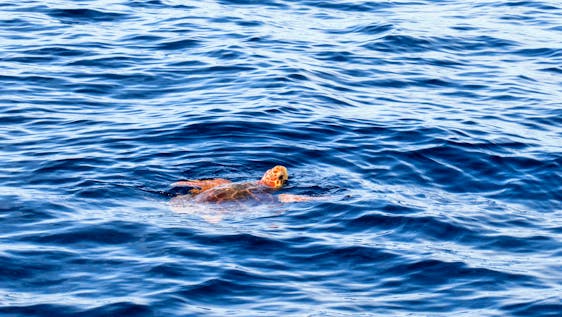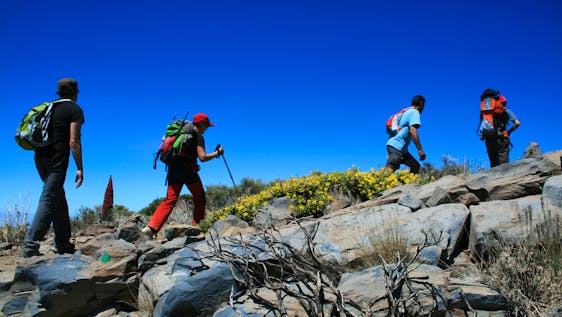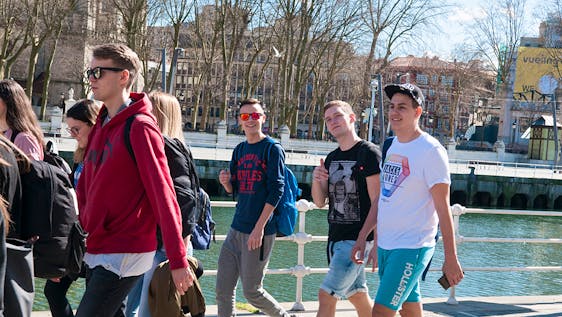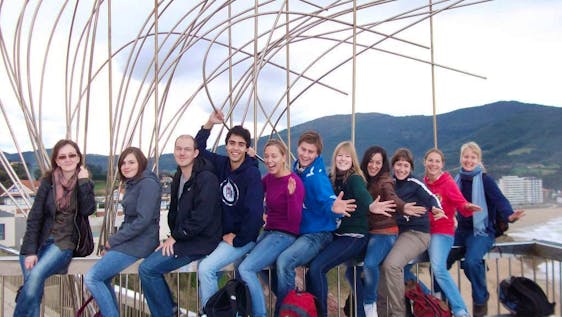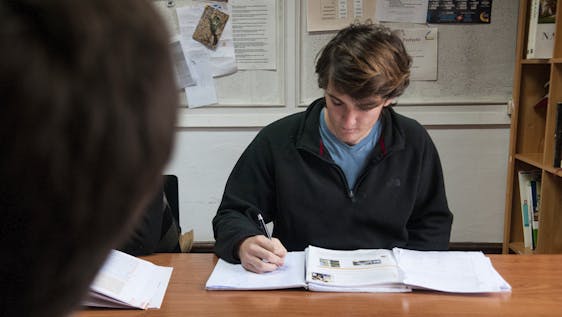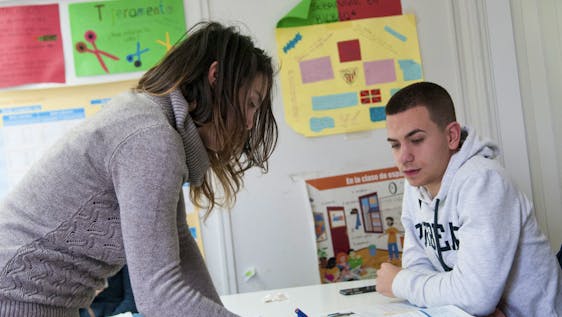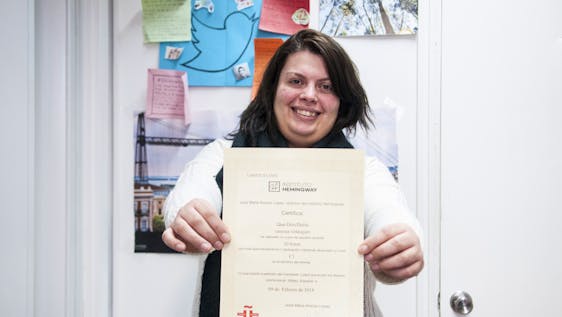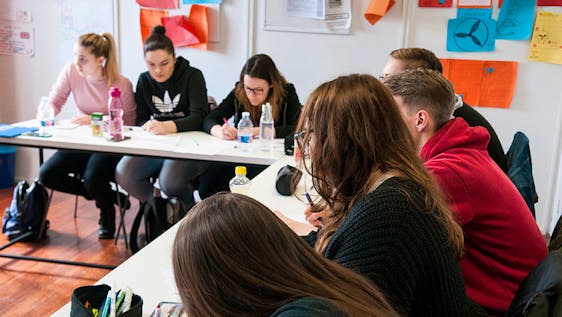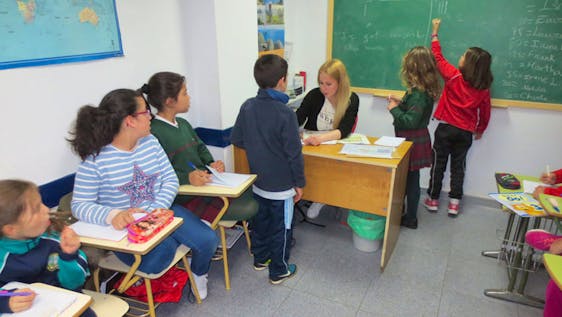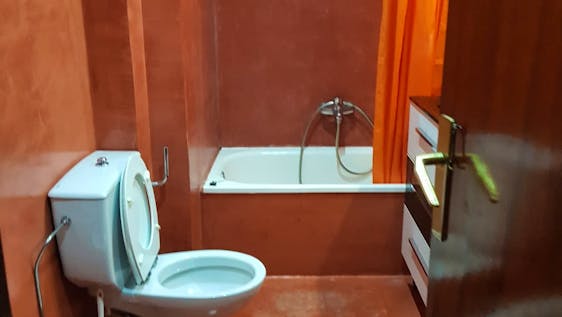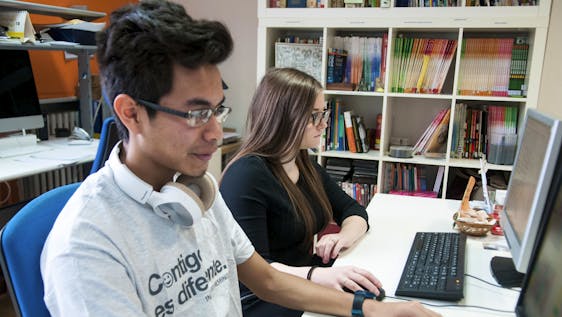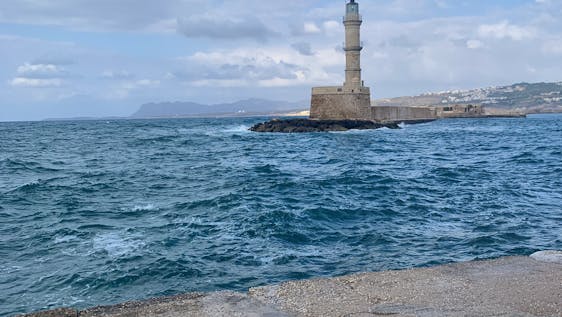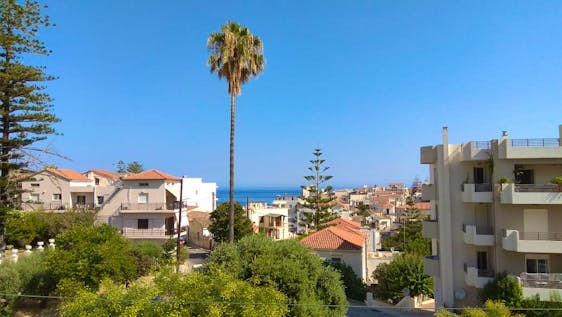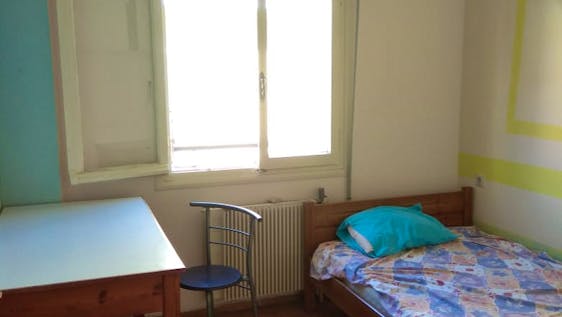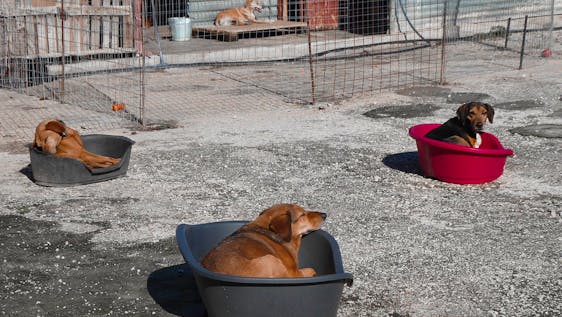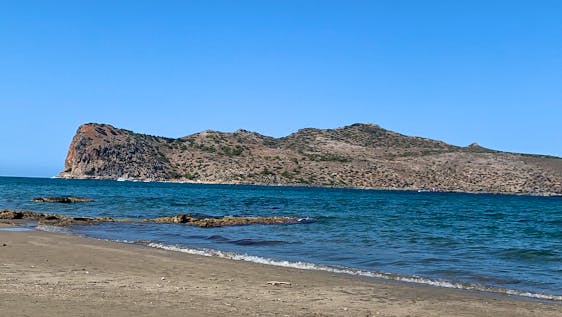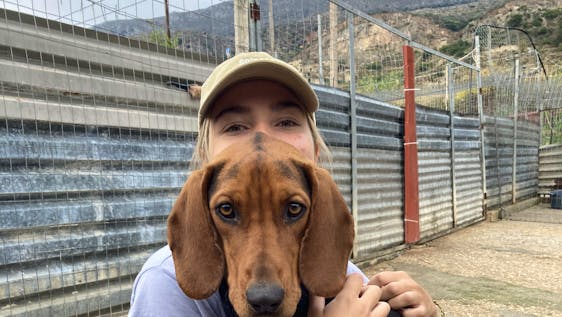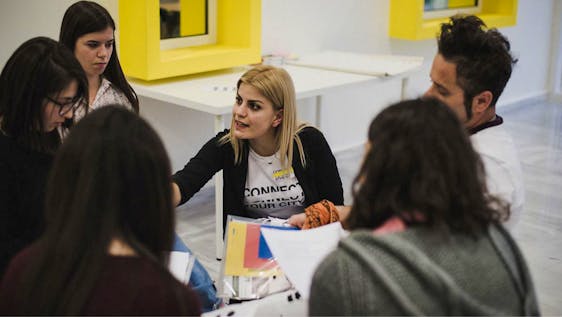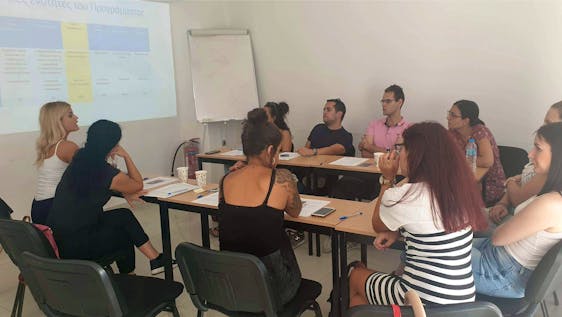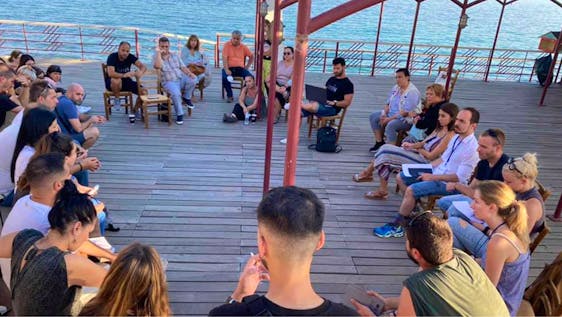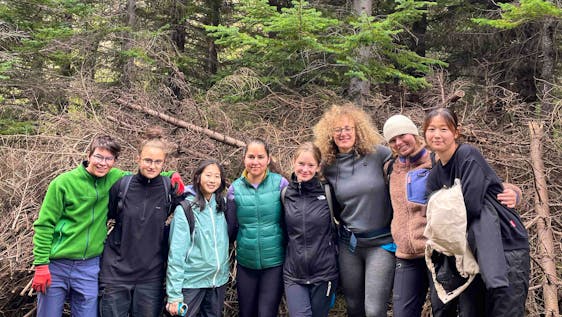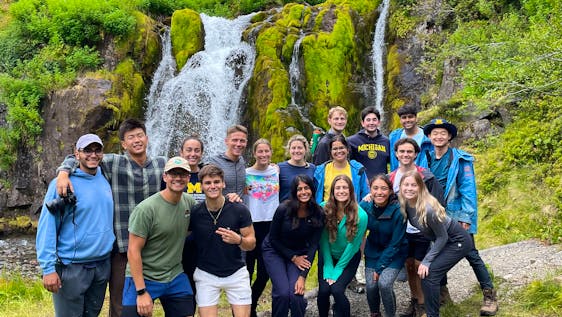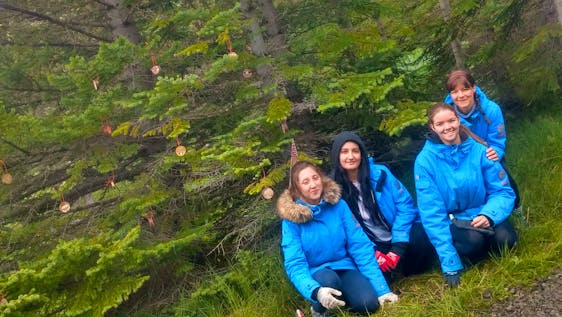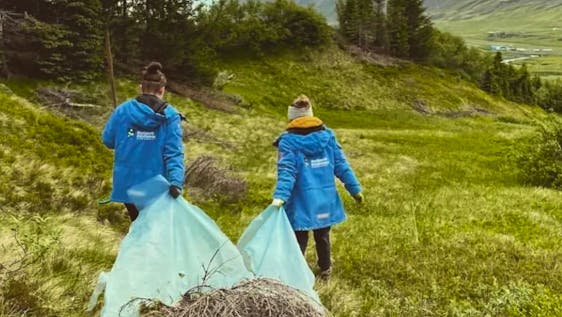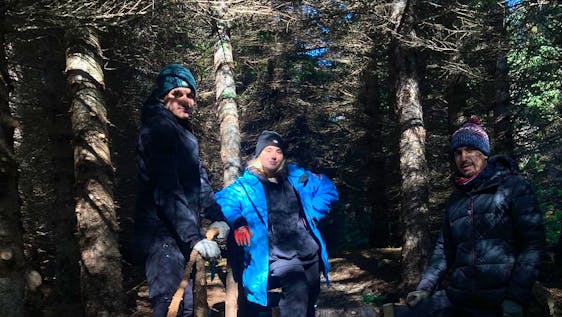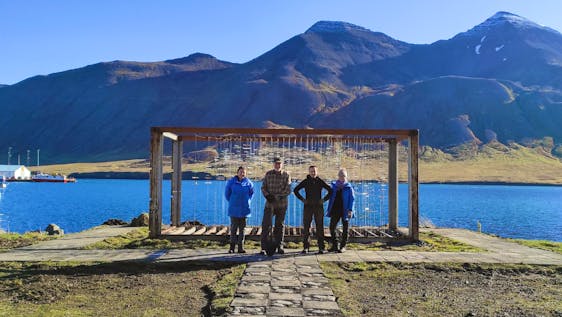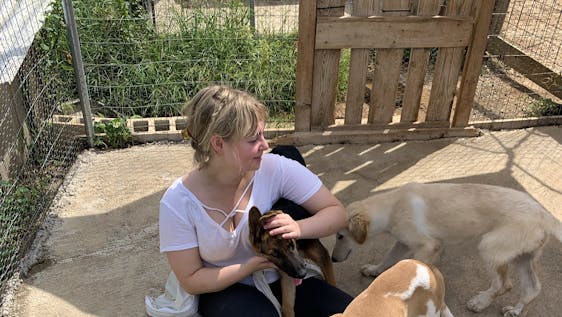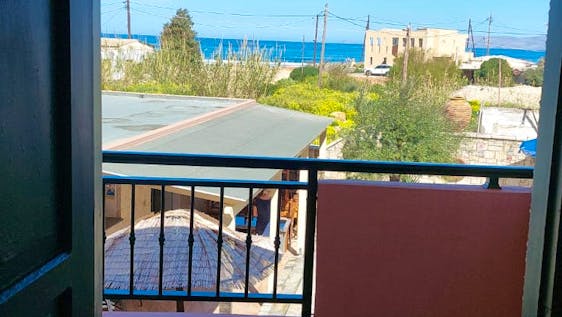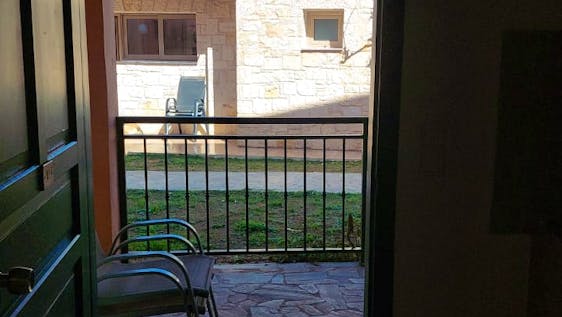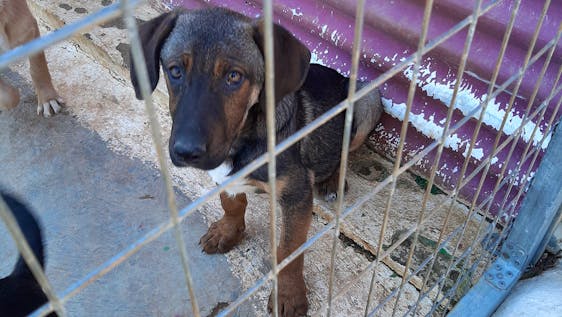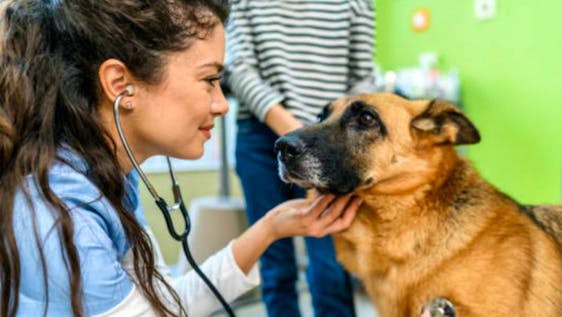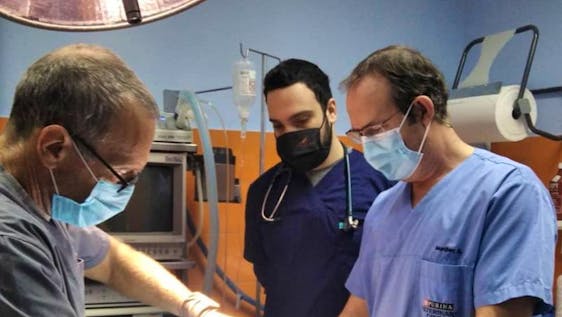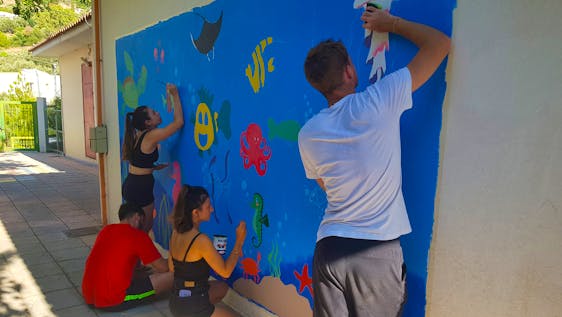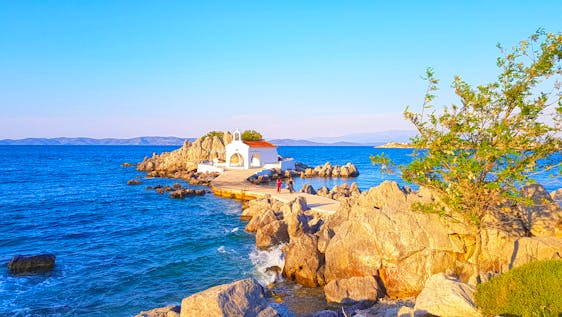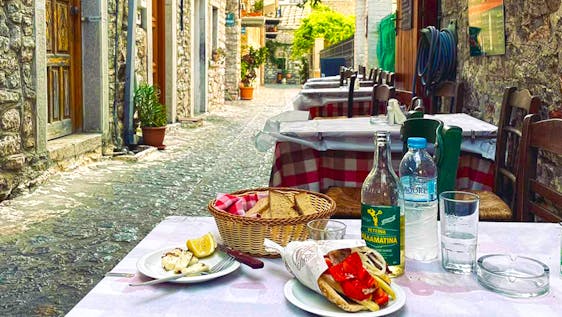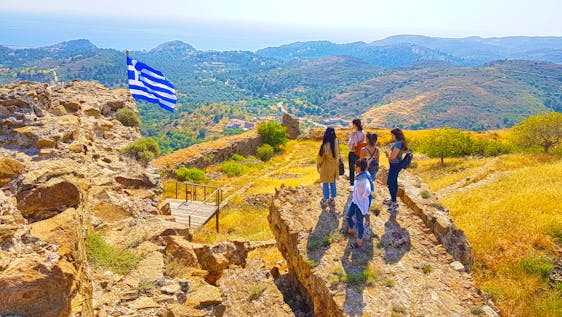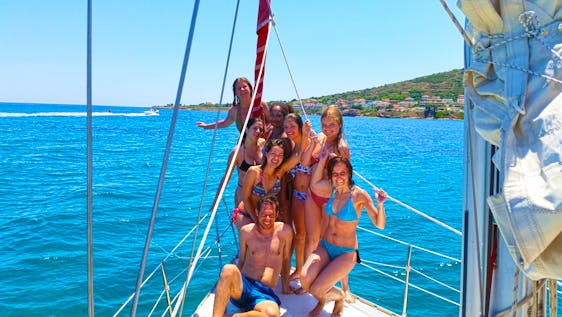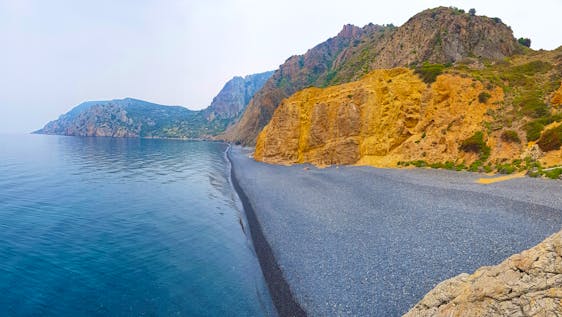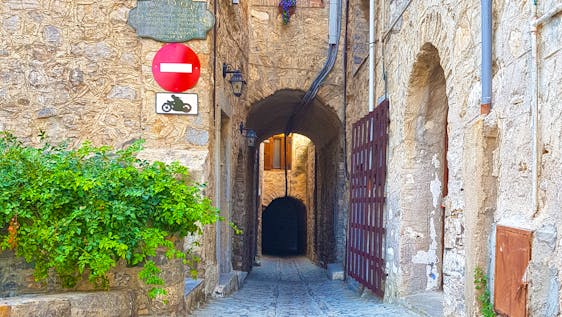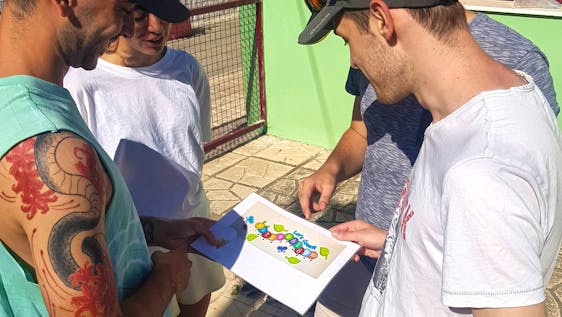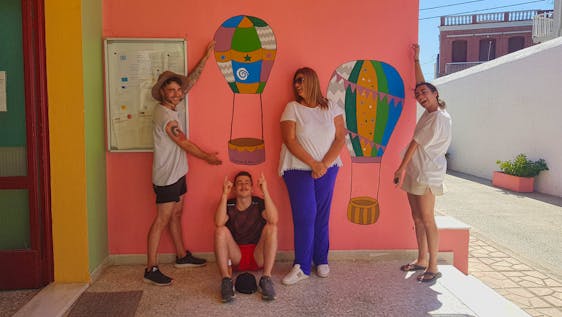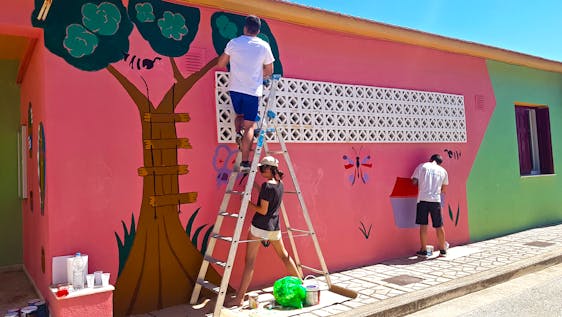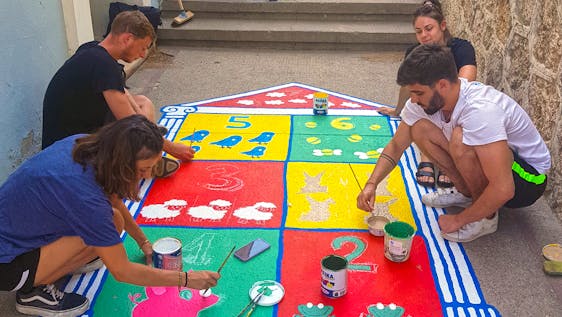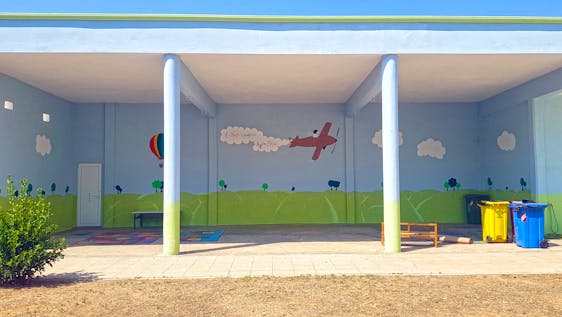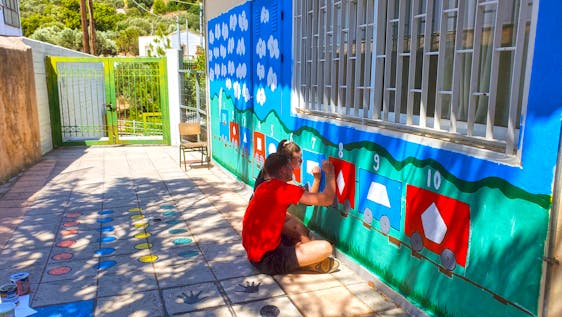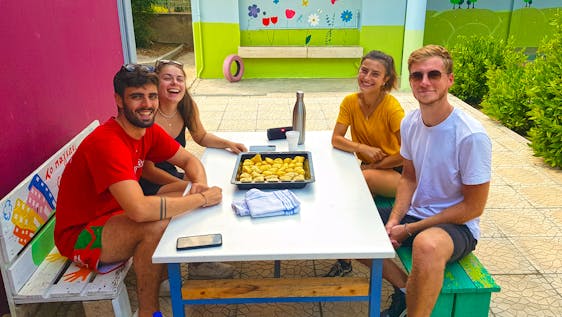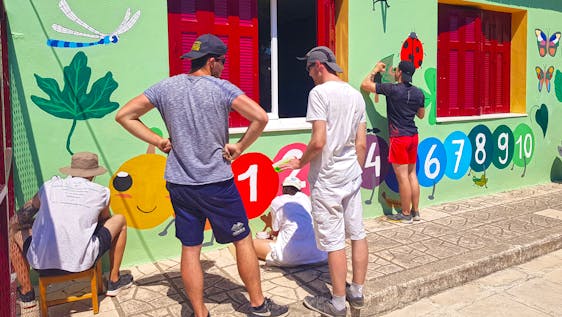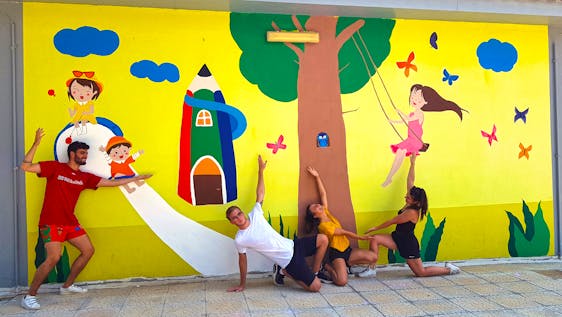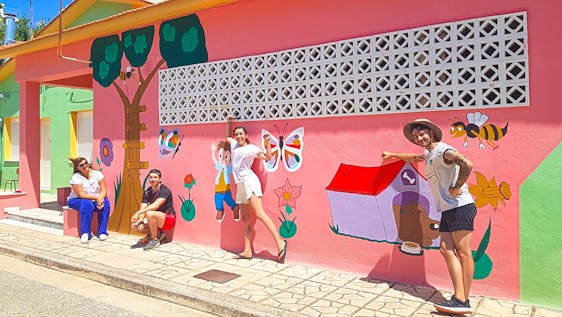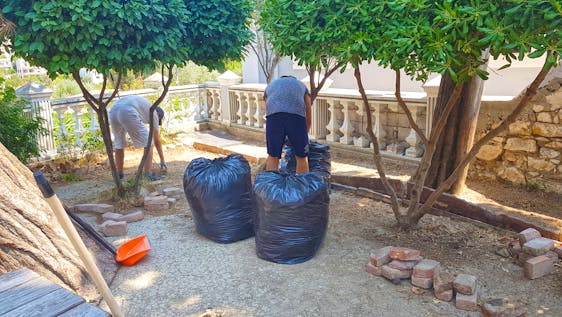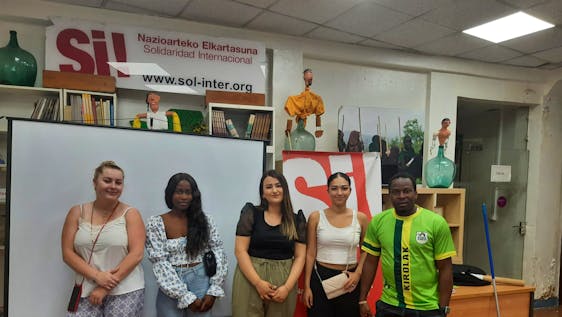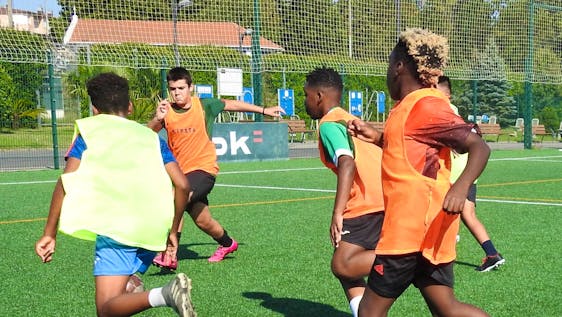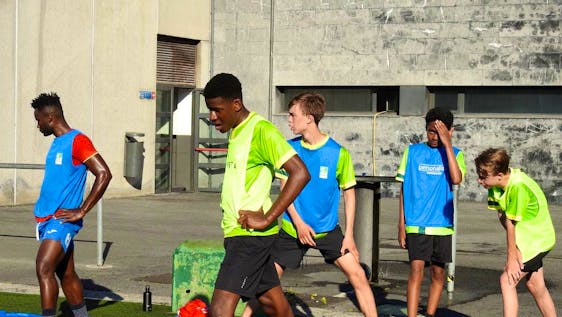Volunteering in Europe


Volunteer programs in Europe
Are you drawn to culture and diverse landscapes? If you’re also passionate about volunteering, you’ll be happy to know that there is a wide variety of volunteer opportunities available in Europe. Volunteer in countries like Spain, Greece, Italy, and Ireland in the European Union or explore hidden treasures like Albania and Moldova in Eastern Europe. While Europe might not be the first continent that comes to mind when you think of volunteering, your volunteering efforts in Europe are just as meaningful as anywhere else in the world. Whether you’re protecting its unique wildlife, teaching English in Europe, or joining one of the community service projects, your commitment is highly appreciated!
If this is the first time that you are considering becoming a volunteer abroad, we are here to help you. We will introduce you to our top volunteer opportunities in Europe. Find out what Europe has to offer and choose where you want to volunteer abroad in Europe!
Whether you are interested in teaching English in Europe, devoting your time to marine conservation, contributing to local communities, or working at a horse sanctuary, the possibilities are almost endless. We will give you more insight into volunteer opportunities in Europe. Find out which volunteer projects are taking center stage in Europe.
Once you are confident that you have found your desired European country for volunteering, we encourage you to check out the respective country page where we provide you with more detailed information. Let’s start by learning a little more about volunteer opportunities in Europe.
🌍 Why Volunteer in Europe?
According to Business Insider, Europe is facing some serious challenges. By engaging yourself in one of the European volunteer opportunities, you will be able to provide relief in the following areas:
- inflation and a rise in the cost of living
- gender inequality in political and economic life
- immigration and integration issues
- climate change
- deterioration of the environment
There are many ways for volunteers to help with these challenges abroad. The most hands-on and active way is to volunteer abroad in Europe for one of the many volunteer projects on site. Whether you are passionate about women empowerment in Ireland, care about injured horses at a horse sanctuary in Spain, or are eager to contribute to marine conservation in Greece or Italy, one of the volunteer programs in Europe will give you the chance to do meaningful work.
Continue reading to find out where to volunteer in Europe Find the answer to what kind of volunteer abroad programs are available and what you will be doing when you decide to volunteer in Europe.
🐬 How to Volunteer with Animal and Wildlife Conservation in Europe
Although you may not think of Europe as the most diverse destination in terms of wildlife, there are quite a few opportunities to work with animals and contribute to wildlife conservation.
From horses in Spain to the conservation of wolves in Portugal and saving bears in Finland, he life on land in Europe portrays a variety of amazing animals. However, Europe doesn’t only convince animal lovers with its diversity on land - its oceans are filled with spectacular marine life such as dolphins, whales, and sea turtles that can be admired on the islands of the Mediterranean.
One of the main problems Europe is facing when it comes to its animals and wildlife is its exploitation for economic purposes. This includes, for example, whaling, poaching of bears, and mistreatment of horses. Additional threats are:
- illegal poaching
- wildlife trade
- shrinking habitats
- environmental pollution
The combination of all these threats has led to declining numbers of many animals, in some cases to the point of near extinction. As a wildlife conservation volunteer in Europe, join other EU aid volunteers to prevent this decline and rehabilitate native European species.
👩🏼🤝👩🏻 How to Support Community Services in Europe
If you want to immerse yourself in European culture and get in touch with the locals during your volunteer work abroad, a community program is a perfect opportunity. Community work calls for open, outgoing, and empathetic volunteers that aren’t afraid of getting involved and can face realities.
Depending on your skills and qualifications, there are many different ways to help in a community development program in Europe, Despite being one of the most developed places in the world, Europe still has marginalized communities that need support. This can take on many forms. Engage the youth in constructive afterschool activities, help care for those with special needs, or redistribute food waste to homeless communities.
Whether you see yourself joining European voluntary service and supporting in Italy, Portugal, or Albania, here are some community service volunteer opportunities:
- taking care of young children
- taking care of people with special needs
- supporting women empowerment and human rights efforts
- working with street children
- renovating and building community facilities, houses, and schools
Migrants and Refugees Integration
The European Commission is developing a common migration and asylum policy to manage the refugee crisis. It will help Europe both to take advantage of the opportunities and to tackle the challenges of increased cross-border mobility. Support this challenging transition by helping refugees and migrants adapt and gain a foothold in the European Union.
🧒🏽 How to Volunteer for Child Care in Europe
Before you decide to volunteer abroad with children or people with special needs, make sure you are prepared for your task and understand what you can expect from the project.
It’s possible that some of the children you will be working with on the programs may have experienced a difficult past and are traumatized to an extent. For this reason, it is important that volunteers have the appropriate skills. If not, you could be putting yourself and the people you work with at risk. It is beneficial that volunteers have the following qualifications when they decide to volunteer with children:
- experience in working with traumatized clients
- training as a child caretaker
- training for people with special needs
- training as a psychologist
- training as a social worker
It’s not always necessary to have these qualifications but volunteers should get in touch with the program coordinator to be informed about the requirements for European or EU aid volunteers.
👩🏽🏫 How to Teach English in Europe
The shortage of staff and geographical difficulties make it difficult for many students, especially in rural areas, to get the education they deserve. As a teaching volunteer in Europe, you can support the staff in local school programs and encourage the progress of the children in the classroom by giving them extra attention. You can also contribute by volunteering for afterschool programs where you help teach kids certain skills. Depending on the volunteer program you choose, there is a great variety of tasks you can do:
- helping out at a daycare center for children with special needs
- assisting disabled children
- supporting local teachers and staff
- teaching school subjects
- teaching English
- providing shelter and education for orphanages
- teaching sports or other after school activities
France, Ireland, Croatia, Italy, and Albania are waiting for enthusiastic volunteer teachers to support their community.
🌳 How to Volunteer for Conservation in Europe
As a volunteer in Europe, you can join environmental programs to make a real difference in protecting the environment. Environmental programs abroad are focused on agriculture, conservation work, and marine conservation.
All conservation programs are spread across the continent, so you will have several options to choose from. Typical voluntary work in Europe for conservation may include:
- Habitat restoration
- Biodiversity monitoring: land, sea, and coast
- Clearing trash from the sea
- Recycling trash
- Archaeological preservation
- Diving and snorkeling
- Sustainable farming
- Wildlife monitoring and research
- Wilderness conservation
- Mapping within Geo-information tool
- Educating environmental awareness
Volunteers who are concerned about the environment and are eager to help maintain Europe’s unique biodiversity have several projects which they can contribute to Ireland, the Russian Federation, Greece, and the UK.
🌍 Where to Volunteer in Europe?
Environmental enthusiasts will likely head to the south of Europe for their volunteer adventure while community service programs are spread over the continent. Here are our top Europe volunteer destinations:
- Spain > Tenerife
- Portugal
- Italy > Naples
- Hungary
- Ireland
- United Kingdom
- Croatia
- Albania
- France
- Romania
🤑 How Much Does it Cost to Volunteer in Europe?
The suggested daily budget for a volunteer in Europe is between US$ 70 and US$ 230. This is an estimate made considering the average price of some of the goods and services you may need.
It gives you a general overview of how much things cost in this country, so you can be prepared and save the money you need for your voluntary work in Europe. The cost of living can vary greatly within Europe. Eastern Europe is much cheaper compared to Western Europe for example and volunteering in the European Union is also more convenient. This is important to keep in mind when selecting projects. Look into the cost of living for the respective country.
Additional costs you should consider as a volunteer in Europe:
- program fees
- flight tickets (find cheap flights to Europe)
- travel insurance (find your travel insurance)
- fees for your visa
- personal expenses
💲 Can I Volunteer in Europe for Free?
There are some very affordable volunteer programs in Europe. You can search for volunteer programs within your budget by using our filter option. Please know that most free volunteer opportunities don’t offer accommodation. This can turn out to be more expensive than some paid volunteer projects.
Almost all paid volunteer projects will offer accommodation. Check the program description for all details about what’s included so you can make an informed decision.
💡 Good to Know Before Volunteering in Europe
Before starting your volunteer work abroad, it’s important to think about the cultural norms you’ll need to adjust to. In addition, learn about the precautions you might need to take when volunteering abroad. The following list can help you with that:
Safety & Precautions
Before you leave on your volunteer trip, make sure to read up on the safety advice your government gives tourists for the country you are planning on visiting. Most European countries, especially the ones in the European Union are pretty safe, however, it is important to use common sense at all times and be aware of the current political situation.
Here are some universal tips you might want to follow during your volunteer work in Europe:
- Keep your personal belongings and important travel documents with you at all times! It also makes sense to bring attested photocopies of these documents, in case you lose them.
- If you are going out, do not take a lot of money, jewelry, or other fancy possessions with you. Take only the money you will need and leave everything else back home!
- In the unfortunate case of being robbed, never resist the robbery!
- Be careful when withdrawing money from a bank or at an ATM!
- Do NOT ever buy, take or sell any kind of drugs.
Health Advice
It is annoying to get sick when traveling abroad and although it’s not so common for travelers in Europe to fall ill, there are some basic precautions you can take to avoid it at all costs:
- Drink tap water only in countries where you know it is safe to do so. Most countries in Europe have drinkable tap water.
- Wash all your fruits and vegetables thoroughly.
- Plan for how you will get health care during your stay. Get travel insurance and bring medication you normally take with you, also bring the prescription just in case.
Packing Essentials
It's nice to have an idea of what to expect from a foreign country. It's even nicer to know what to pack! This makes life a lot easier when it comes to preparing for your time as a volunteer for one of the programs in Europe. It is always a good idea to ask your project coordinator what volunteers should bring for the program.
- Apart from the essential travel documents, like passport, travel medical insurance information, and visa, you should also keep photocopies or scanned copies of these.
- Always carry sunscreen with you in the summer.
- Keep enough cash with you! You might want to consider getting a money belt.
- Carry luggage with you that will, not complicate your trip, like daypacks or backpacks; as well as lightweight bags.
- Pack appropriate clothing and shoes! This means clothes that are suitable for a variety of climates, as temperatures can vary greatly on a daily basis in Europe. Especially, when working in the forests, long clothing protects you from bug bites.
- Don't forget to bring locks for hostel lockers and also for your luggage!
🕵🏽♀️ Who Can Volunteer in Europe?
All projects expect different skills and abilities from their volunteers. While you can find the specific requirements for each project on the program page, here are some general requirements that apply to most volunteer opportunities in Europe.
- You need to be at least 18 years old for most of the volunteer projects in Europe. When in doubt, we advise you to get in touch with the local project manager. Some projects accept volunteers from the age of 16.
- You need to have basic English skills to join a volunteer project in Europe. Please note that some teaching projects might ask for more advanced English skills.
- Depending on the project you're interested in, you might need to provide a criminal background check and a health declaration before volunteering.
🙋🏽♀️ Can I Volunteer in Europe Under 18?
Europe is a wonderful place to volunteer and relatively safe so it’s a great place for volunteers under 18. You can use the filter option on our website to select volunteer programs in Europe that accept volunteers under 18.
There are quite a few volunteer opportunities in Europe for under 18s. You can also get in touch with the volunteer organization to see if they will accept you. This is a great opportunity to gain hands-on work experience abroad while being a European aid volunteer!
❓ How to Volunteer in Europe?
So you want to volunteer in Europe but you’re not quite sure how to get started? Take a look at the following 3 steps that will prepare you for your volunteer programs in Europe and an unforgettable time abroad:
- Check whether there’s a match between you and the project by looking at their requirements on the program page.
- Take a look at the location of the project and decide whether it is a place you want to travel to.
- Get in touch with the organization and see whether your expectations and your schedules matched up.
- Once this is sorted. Let’s take a look at the practical steps:
Insurance (Health & Travel)
We recommend all our volunteers to get both health and travel insurance. This is a requirement for most programs abroad. Get in touch with your program contact person to find out if an insurance plan is already in place for volunteers.
What are the best alternatives to the European Solidarity Corps?
The European Solidarity Corps is a European Union initiative that aims to engage young people in solidarity activities and projects that benefit communities and tackle societal challenges. It offers opportunities for young people to volunteer, work, and learn in different countries, with the goal of promoting solidarity and building a more inclusive and cohesive society.
However, the European Solidarity Corps is relatively new and not widely known, which means that participants may not receive the same level of recognition and support as other volunteering and internship programs. This can make it difficult for participants to gain valuable skills and experiences, and may not be able to provide the same level of support and opportunities as other programs.
There are also restrictions to join the European Solidarity Corps: Only selected programs are available for non-Europeans and the volunteers need to be aged between 18-30. Additionally, many projects are specifically catering long-term volunteers up to 12 months. If you are looking to join for a short duration, it's a good idea to opt for an alternative to the European Solidarity Corps.
There are many alternatives to the European Solidarity Corps, some of which include volunteering with international volunteer organizations such as Plan My Gap Year, GVI or ImpacTrip. You can do independent volunteer work in a community or organization that aligns with your interests and values. These are just a few examples, and there are many other ways to get involved in volunteering and solidarity efforts both within Europe and around the world.
🛂 Do I need a Visa to Volunteer in Europe?
Visa, Passport, and Documentation
Look into the visa requirements for the country you will volunteer in. Make sure you have a valid passport considering the requirements of the host country and prepare the correct documents to fulfill the visa application.
And that’s it! You’re ready to volunteer in Europe and fall in love with nature and the rich culture You have a choice of over 60 different volunteer programs in Europe that are waiting for volunteers. Are you ready to do your part?
We would love to help you find the right volunteer program in Europe. Our live chat team is here to answer your questions.
 Activities
Activities
 Hotspots
Hotspots
 Southern Europe
Southern Europe
 Waste Reduction
Waste Reduction
 Northern Europe
Northern Europe
 Vegan
Vegan
 Environment
Environment
 Iceland
Iceland
 Animal
Animal
 Greece
Greece
 Plastic Reduction
Plastic Reduction
 Scouts
Scouts
 Sea Turtle Conservation
Sea Turtle Conservation
 Agriculture
Agriculture
 Ecological Farming
Ecological Farming
 Spain
Spain
 Reykjavik
Reykjavik
 Animal Shelter
Animal Shelter
 Marine Life
Marine Life
 Ocean Cleaning
Ocean Cleaning
 Planting Trees
Planting Trees
 Conservation Work
Conservation Work
 Street Animals
Street Animals
 Loggerhead Turtle
Loggerhead Turtle
 Kefalonia
Kefalonia
 Beach Cleaning
Beach Cleaning
 Dog
Dog
 Hiking
Hiking
 Bilbao
Bilbao
 Spanish Courses
Spanish Courses
 Language Course
Language Course
 Horse
Horse
 Volunteer and Travel
Volunteer and Travel
 Voluntourism
Voluntourism
 Athens
Athens
 Intern Abroad
Intern Abroad
 Healthcare
Healthcare
 Education
Education
 Medical Training
Medical Training
 Wildlife Conservation
Wildlife Conservation
 Crete
Crete
 Horse Sanctuary
Horse Sanctuary
 Dolphin Conservation
Dolphin Conservation
 Leatherback Turtle
Leatherback Turtle
 Malaga
Malaga
 Tenerife
Tenerife
 Bottlenose Dolphin
Bottlenose Dolphin
 Community
Community
 Cats
Cats
 Marine Conservation
Marine Conservation
 Premium
Premium
 Whale Conservation
Whale Conservation
 Reforestation
Reforestation
 Portugal
Portugal
 Bird Conservation
Bird Conservation
 English Teaching
English Teaching
 Lisbon
Lisbon
 Veterinary Training
Veterinary Training
 Humpback Whale
Humpback Whale
 Tortoise Conservation
Tortoise Conservation
 Chios
Chios
 Italy
Italy
 Construction
Construction
 Psychology Internship
Psychology Internship
 Eagle
Eagle
 Northern Giraffe
Northern Giraffe
 African Leopard
African Leopard
 Leopard Conservation
Leopard Conservation
 Youth Teaching
Youth Teaching
 Social Work
Social Work
 United Kingdom
United Kingdom
 Diving
Diving
 Husky
Husky
 Photography Internship
Photography Internship
 Grey Wolf
Grey Wolf
 Wolf Conservation
Wolf Conservation
 Sports
Sports
 Soccer
Soccer
 Green Sea Turtle
Green Sea Turtle
 Parrot
Parrot
 Spur-thighed Tortoise
Spur-thighed Tortoise
 Eastern Europe
Eastern Europe
 Yoga
Yoga
 Croatia
Croatia
 NGO Support
NGO Support
 Ireland
Ireland
 Reptile Conservation
Reptile Conservation
 Chameleon
Chameleon
 Giant Tortoise
Giant Tortoise
 Hungary
Hungary
 Diving certificate
Diving certificate
 Split
Split
 Rome
Rome
 Nursing Internship
Nursing Internship
 Building Schools
Building Schools
 Business Development
Business Development
 Barcelona
Barcelona
 Snorkeling
Snorkeling
 Montenegro
Montenegro
 Marketing and IT
Marketing and IT
 Nutrition and Food
Nutrition and Food
 Physical Therapy Internship
Physical Therapy Internship
 Primary School
Primary School
 Common Dolphin
Common Dolphin
 Special Needs
Special Needs
 Refugees
Refugees
 Bear Conservation
Bear Conservation
 National Park
National Park
 Families with small kids
Families with small kids
 Romania
Romania
 Energy and Water
Energy and Water
 Porto
Porto
 Otter Conservation
Otter Conservation
 Eurasian Otter
Eurasian Otter
 Childcare
Childcare
 Coral Reef
Coral Reef
 Horse Therapy
Horse Therapy
 Animal Sanctuary
Animal Sanctuary
 Pilot Whales
Pilot Whales
 Sperm Whale
Sperm Whale
 European Wildcat
European Wildcat
 Surfing
Surfing
 Culture and Arts
Culture and Arts
 NGO Management
NGO Management
 Dental Internship
Dental Internship
 Owl
Owl
 Elderly Care
Elderly Care
 Valencia
Valencia
 Working with Seniors
Working with Seniors
